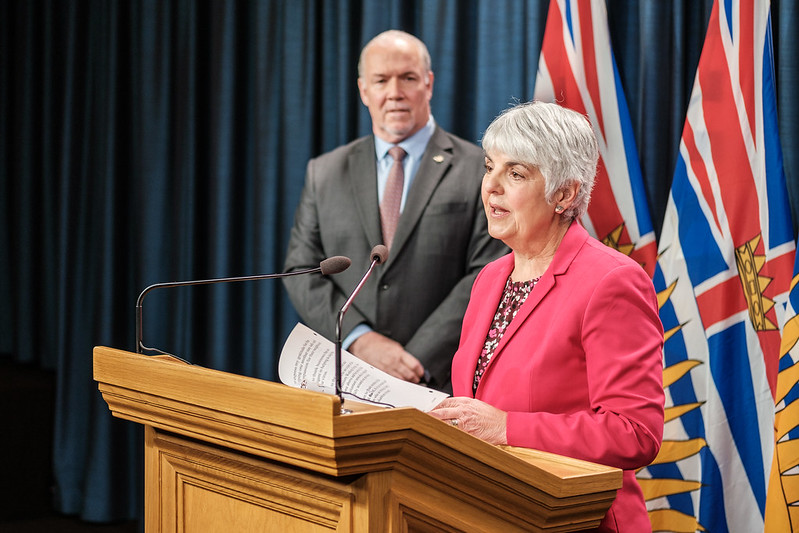The B.C. government has released an economic and fiscal update for 2020-21 to provide a summary of COVID-19 investments to date, as well as a scenario of revenue and deficit projections.
With the pandemic response for British Columbians and a significant revenue decline due to the pandemic, the Province’s total operating deficit for 2020-21 could be $12.5 billion, based on projections developed by the Ministry of Finance.
In the snapshot presented, B.C.’s real gross domestic product (GDP) could decline by 6.8% in 2020, and as the recovery begins, the economy could grow by 3.1 percent in 2021.
“Job losses in the province have been significant, with 235,100 fewer jobs in June compared to February. Job losses are not expected to be fully recovered this year. Employment in the province could decline by 9.8 percent in 2020. As businesses resume and people go back to work, employment could increase by 4.4 percent in 2021, representing an annual gain of 102,000 jobs,” said BC Finance Minister Carole James.
Retail sales also may decline by 15.9 percent this year, she adds, but it is projected to rise by 8.6 percent next year.
The value of residential sales may decline by 27.6% in 2020, followed by a possible growth of 9.3% in 2021.
Operating results
* Total changes since Budget 2020 in February amount to $12.751 billion.
* Government’s support for people and businesses is estimated at $6.262 billion in 2020-21. This includes:
* $5.0 billion in Supplementary Estimates spending;
* $762 million in other business relief and tax measures; and
* $500 million for the one-time increase to the climate action tax credit.
* Overall revenue for 2020-21 is estimated to decrease by $6.313 billion under the scenario.
* Additional debt servicing costs are estimated at $176 million.
* Budget 2020 forecasted an operating surplus of $227 million, which based on the scenario would result in an estimated operating deficit of $12.5 billion for 2020-21.
Capital spending
* Budget 2020 included $22.9 billion in taxpayer-supported capital spending over the fiscal plan and included new investments to sustain and expand provincial infrastructure, including schools, post-secondary facilities, housing, transit, roads, bridges, and hospitals.
Debt levels
* taxpayer-supported debt levels may reach $61.9 billion at the end of 2020-21. In Budget 2020, the projection was $49.2 billion.
* The taxpayer-supported debt-to-GDP ratio may increase to 22% in 2020-21, up from the Budget 2020 forecast of 15.5%.
* Despite the need for increased borrowing and higher debt levels, B.C. will benefit from low-interest rates.
On average, private-sector forecasters expect B.C.’s real GDP to decline by 5.4% in 2020, which is better than the decline of 6.6% on average across Canada, and ranks B.C. fourth among provinces.
As part of the COVID-19 Action Plan, $1.5 billion has been earmarked for economic recovery measures to be announced in September.
The BC Government has spent $6.26 billion in COVID-19 supports to date.
That includes the $5 billion in supplementary spending for B.C.’s COVID-19 Action Plan supports, such as workers benefits, rent supplements, income and disability assistance supports and economic recovery funding.
These are in addition to $1.26 billion in other tax and relief measures for people and businesses, including the one-time increase to the climate action tax credit and property tax reductions for businesses.
B.C. Economic and Fiscal Update
B.C.’s Economic Recovery public consultation
Something going on in the Prince George area you think people should know about?
Send us a news tip by emailing [email protected].






